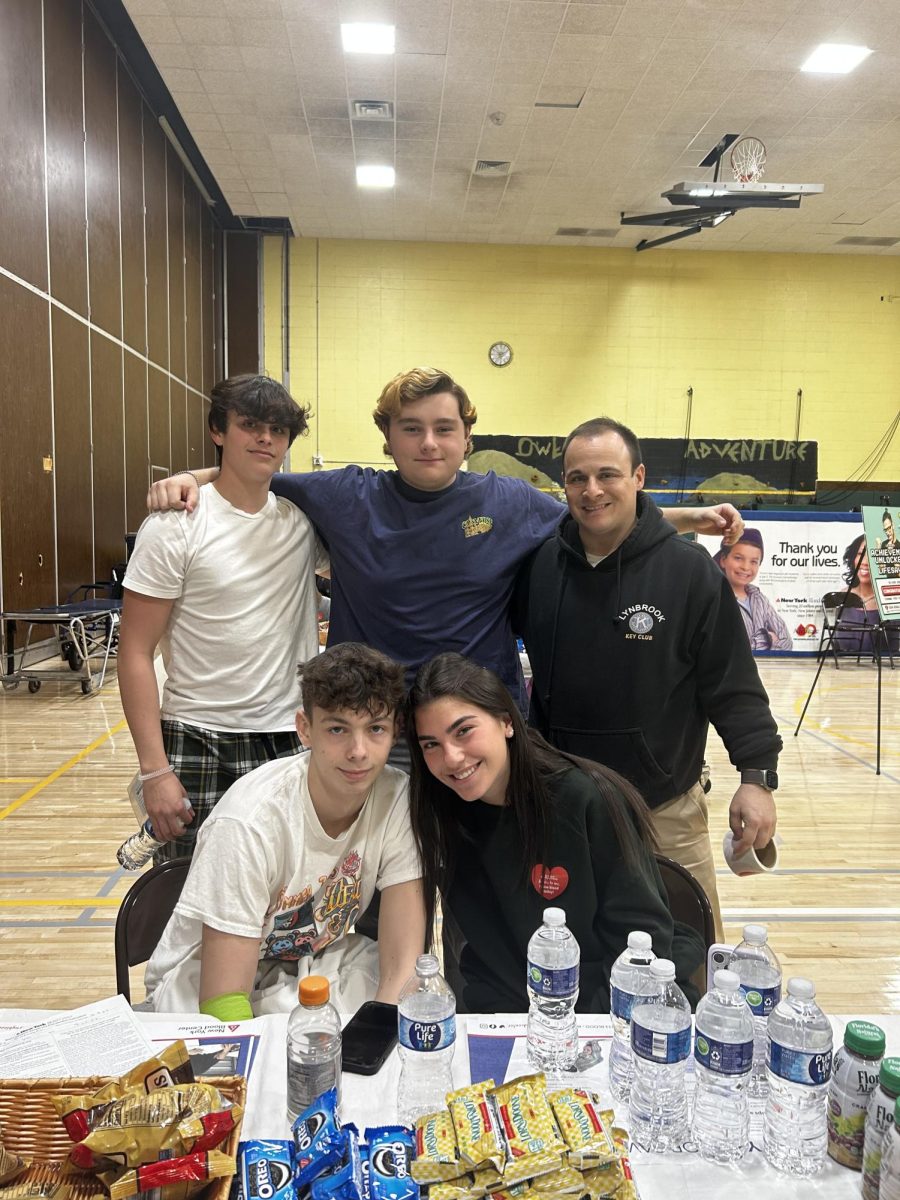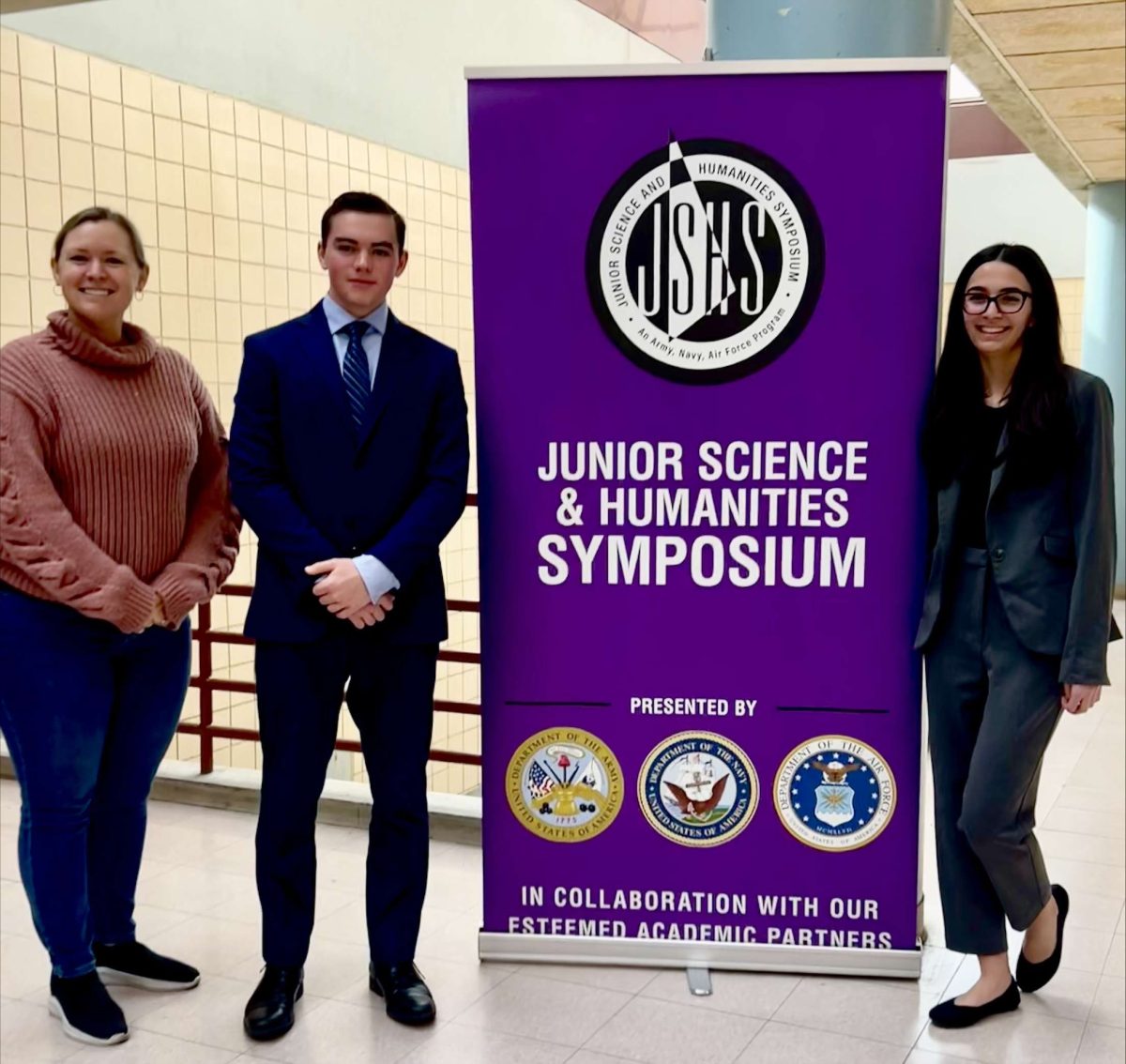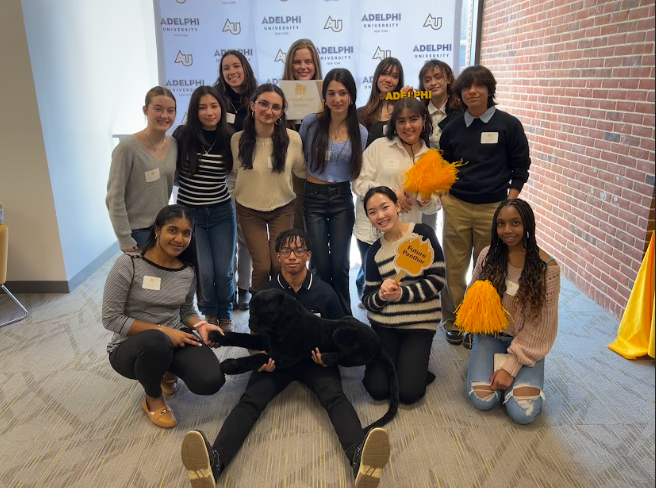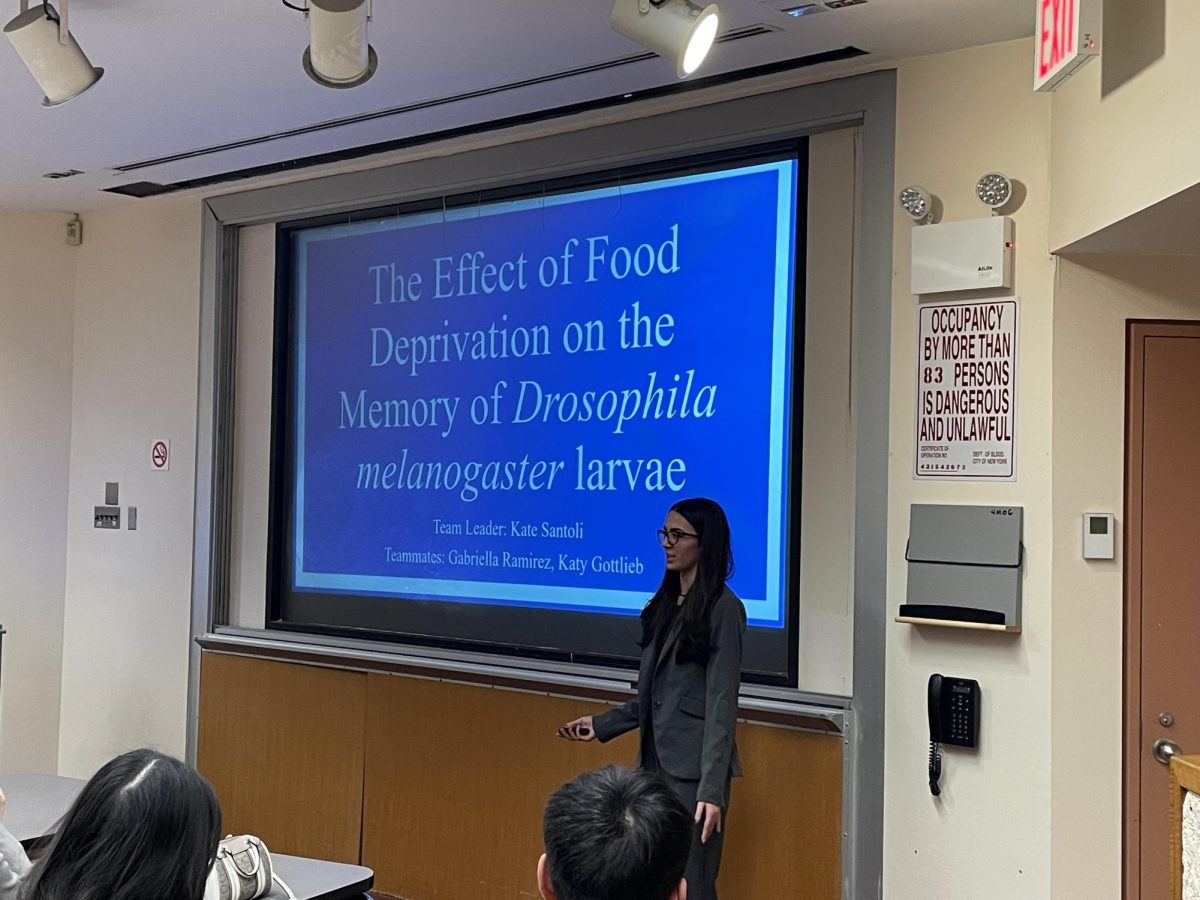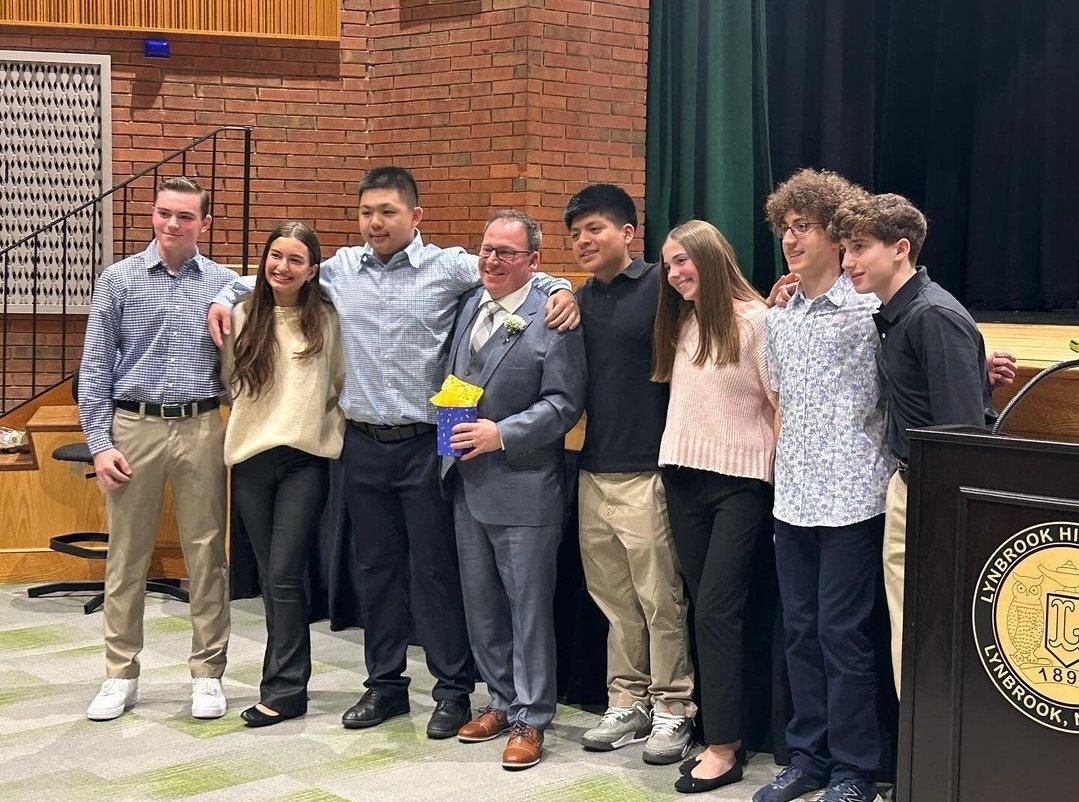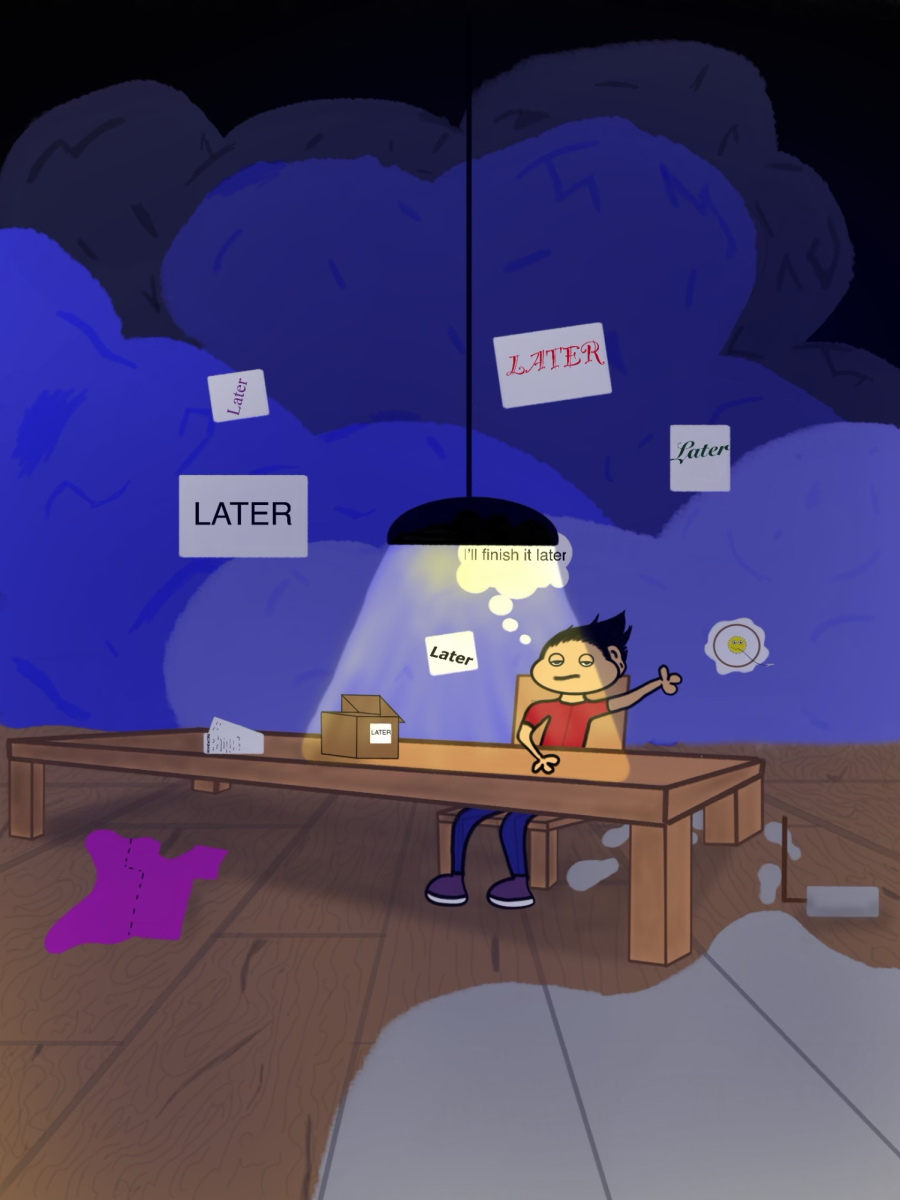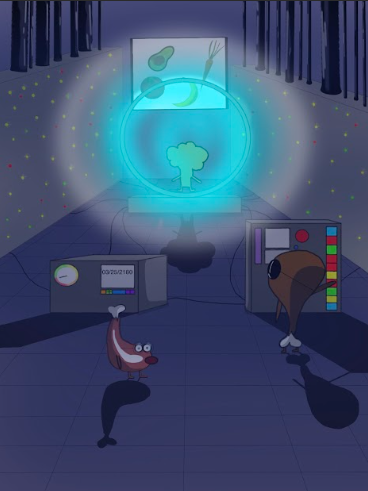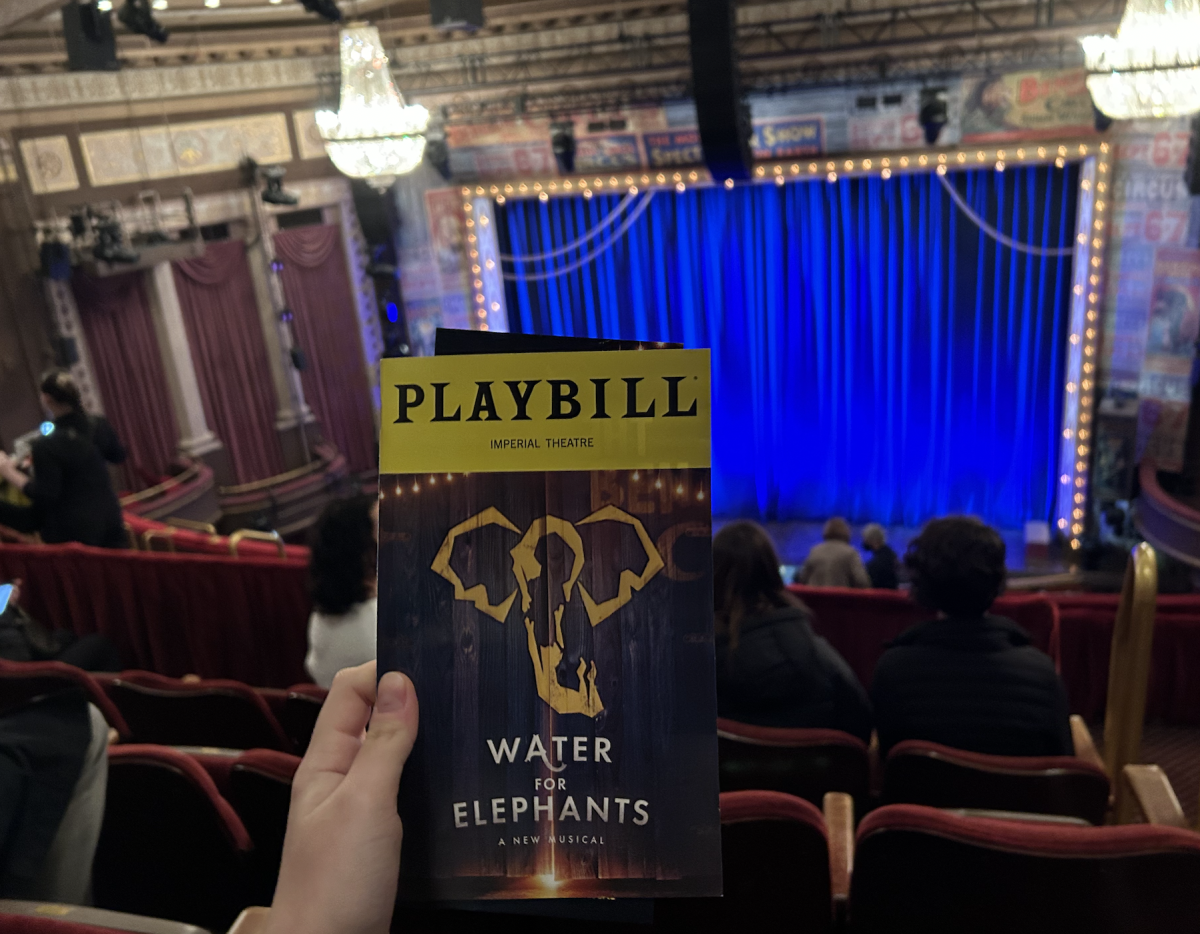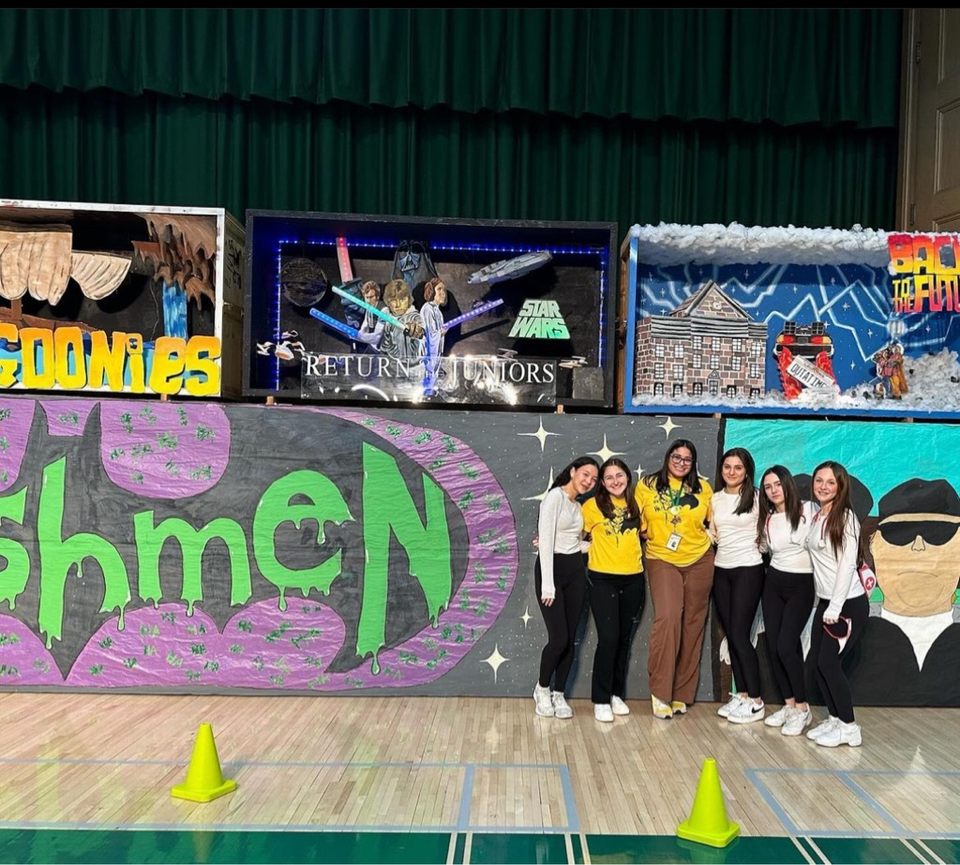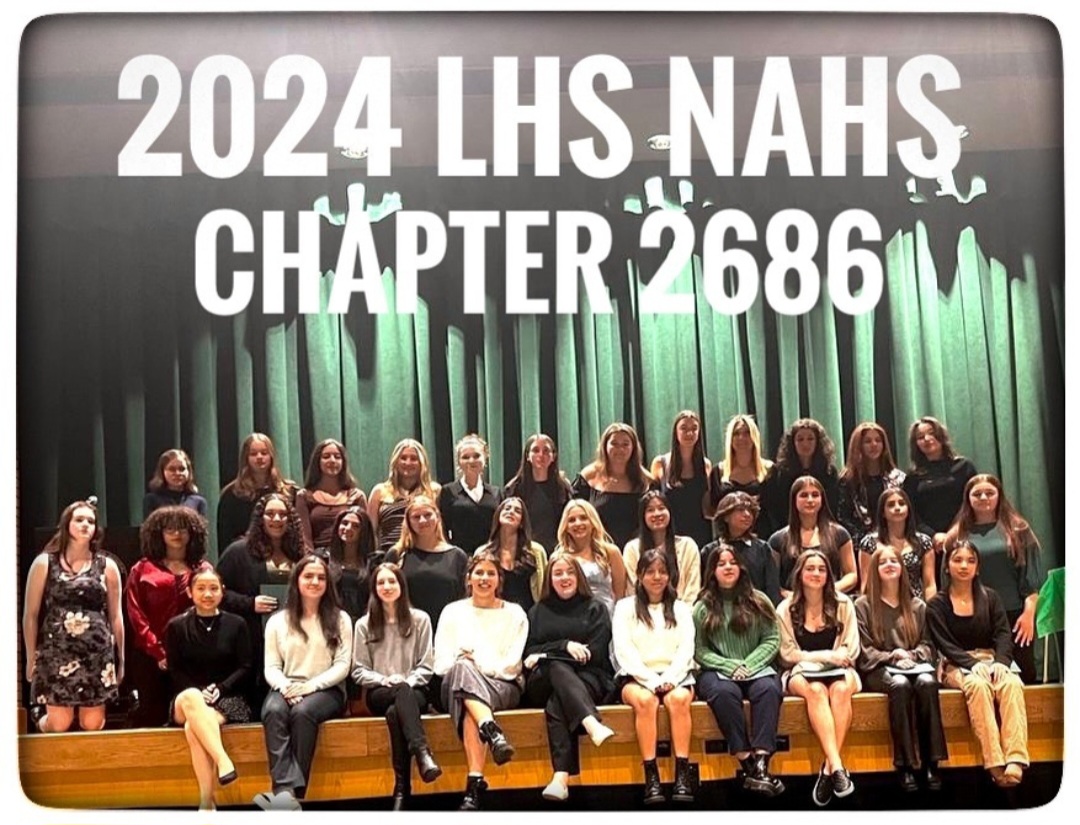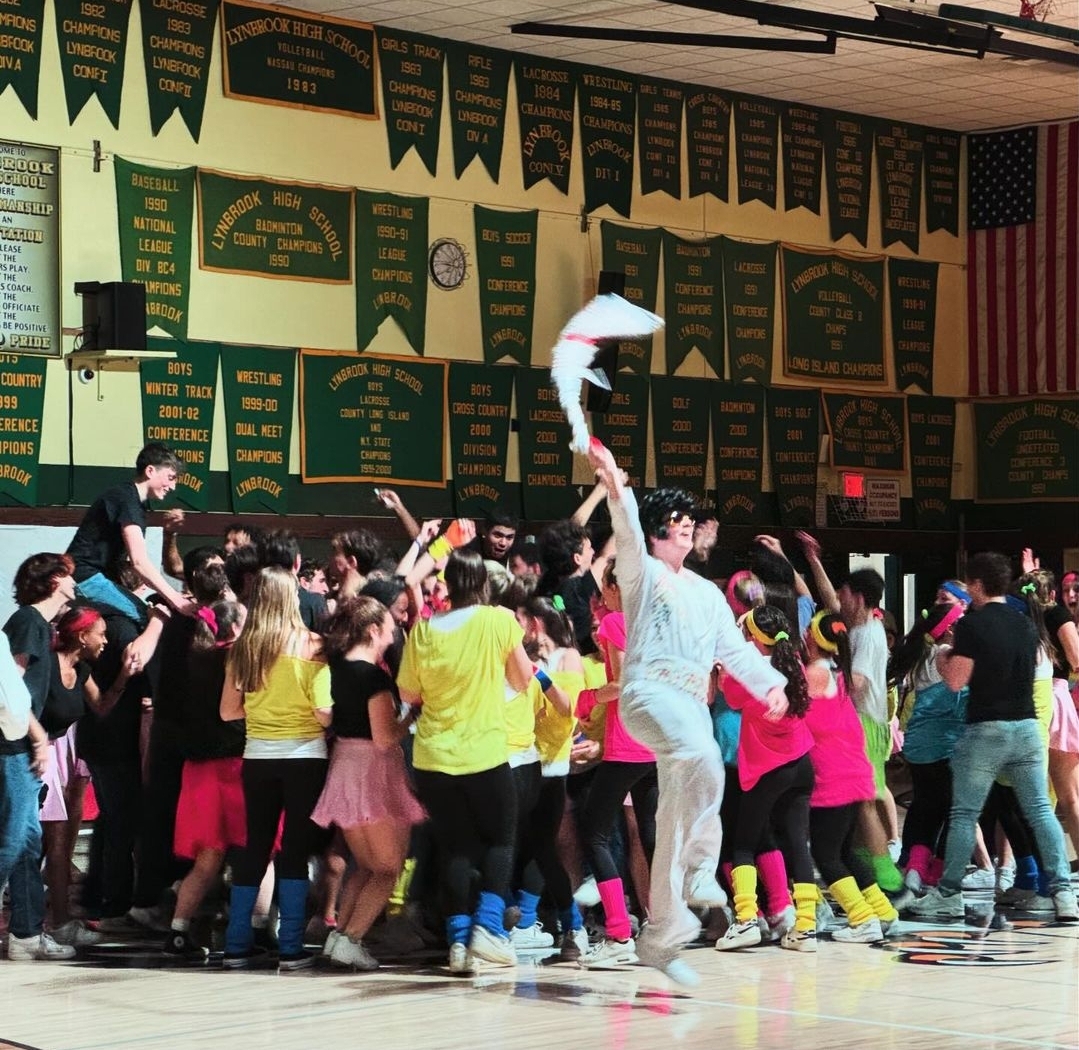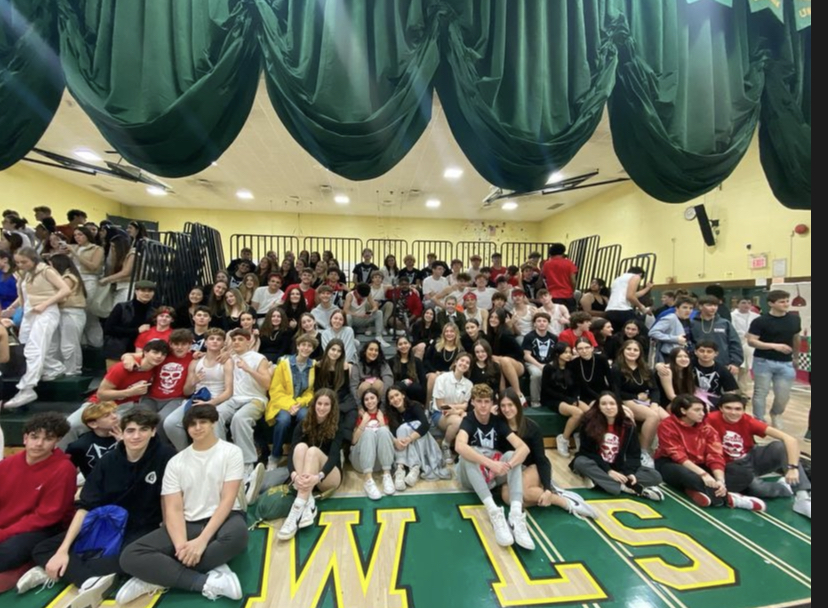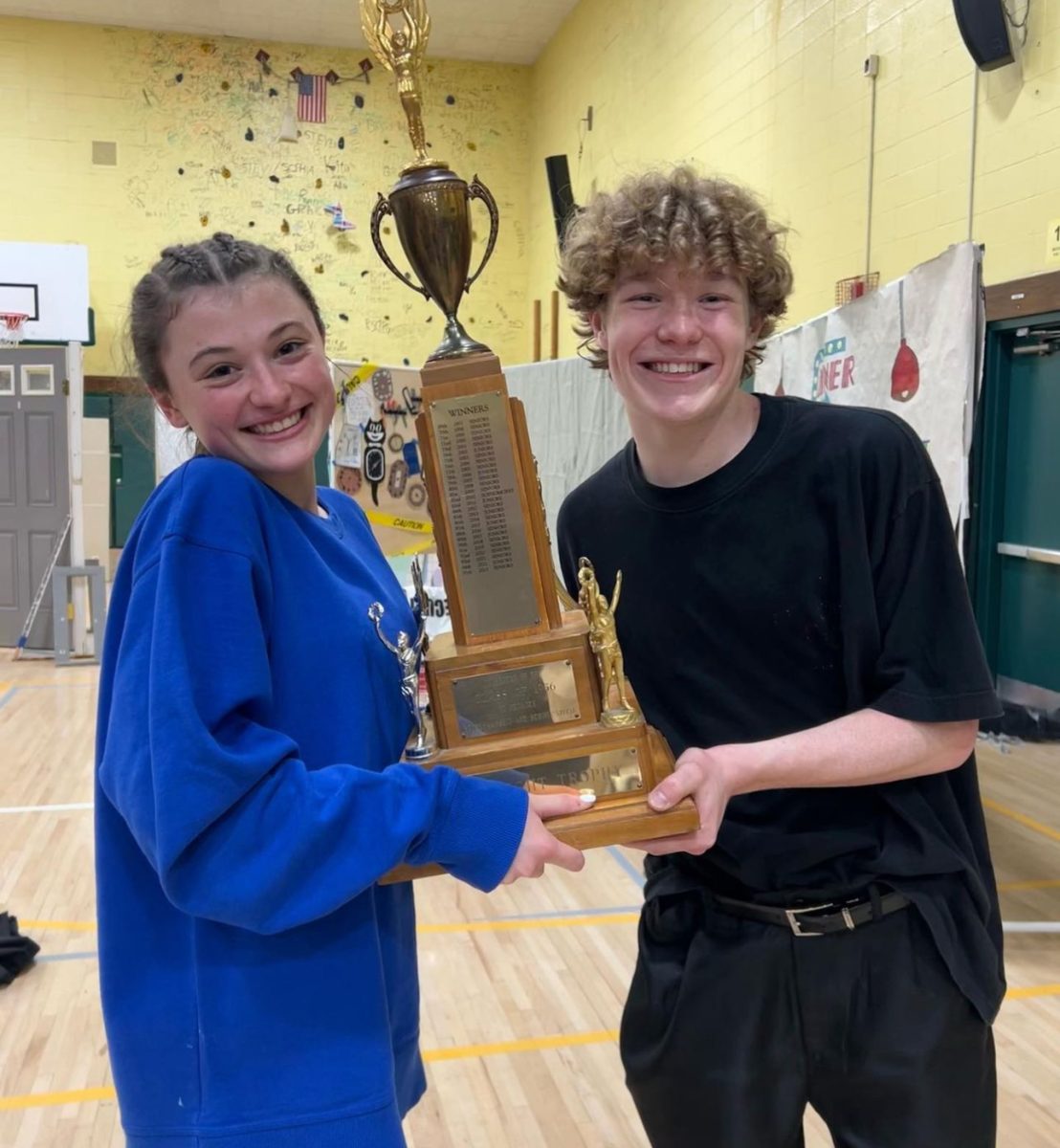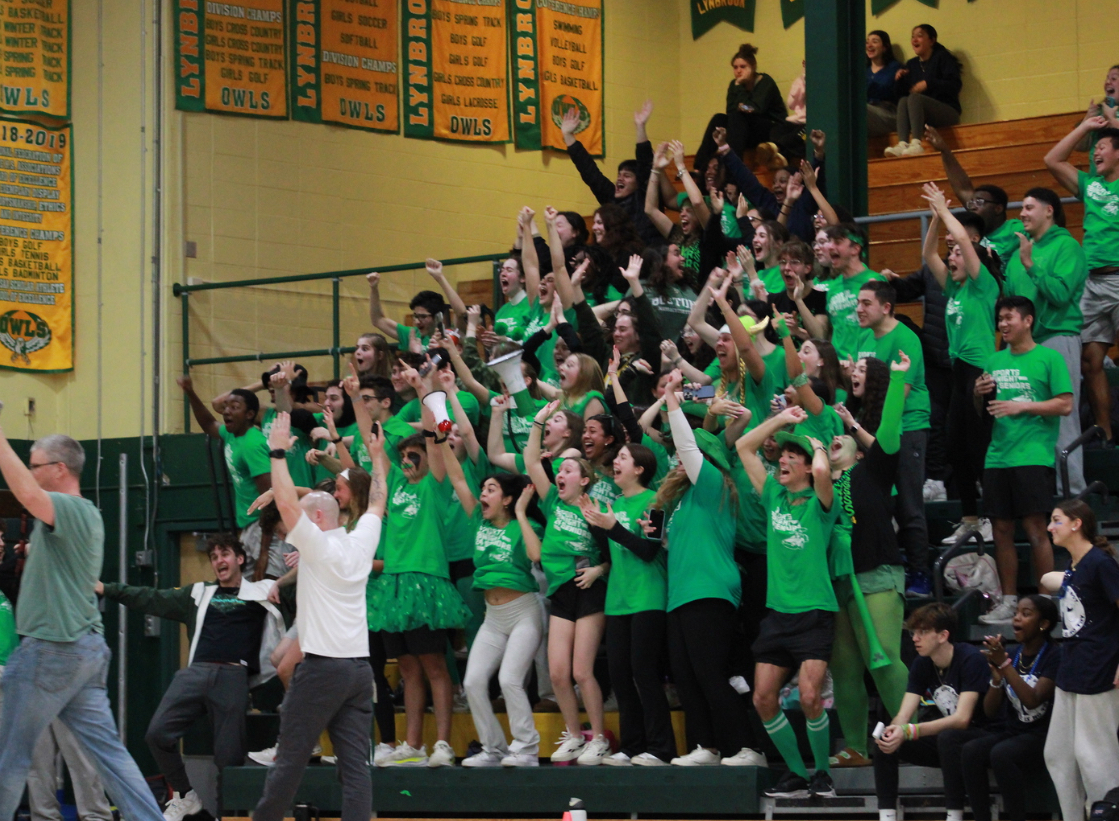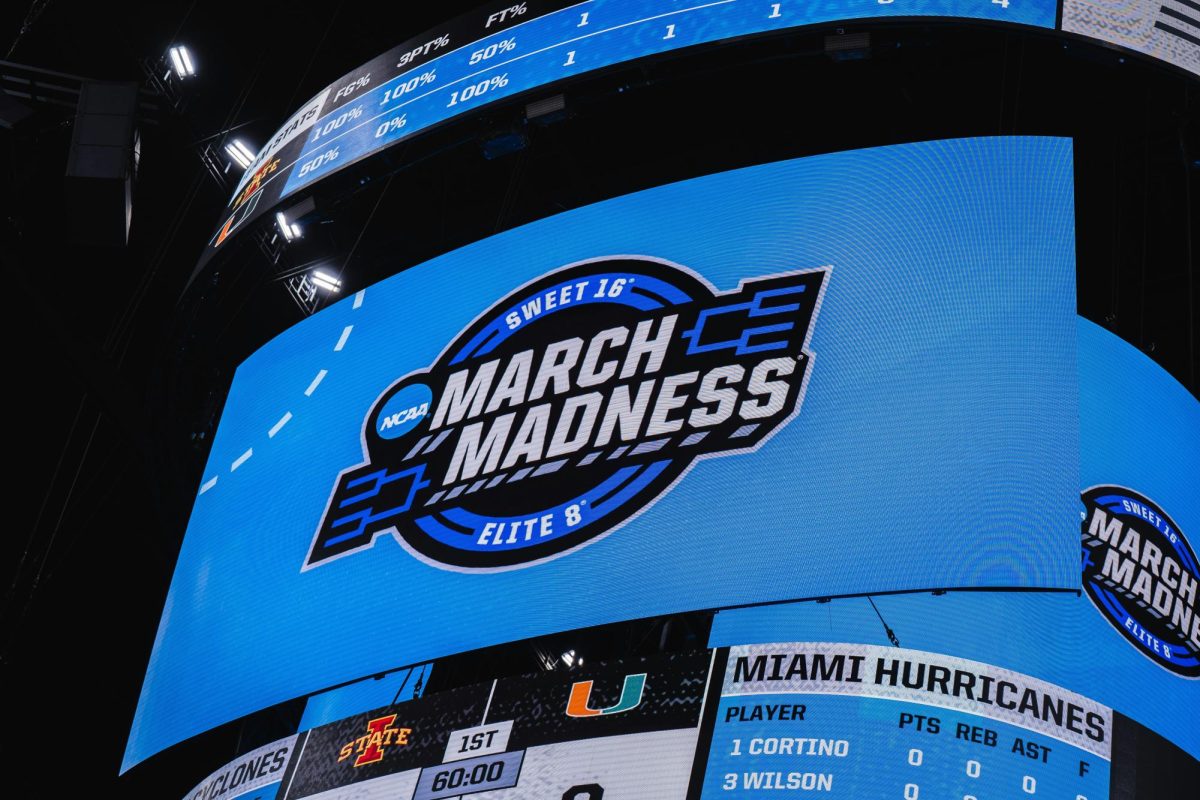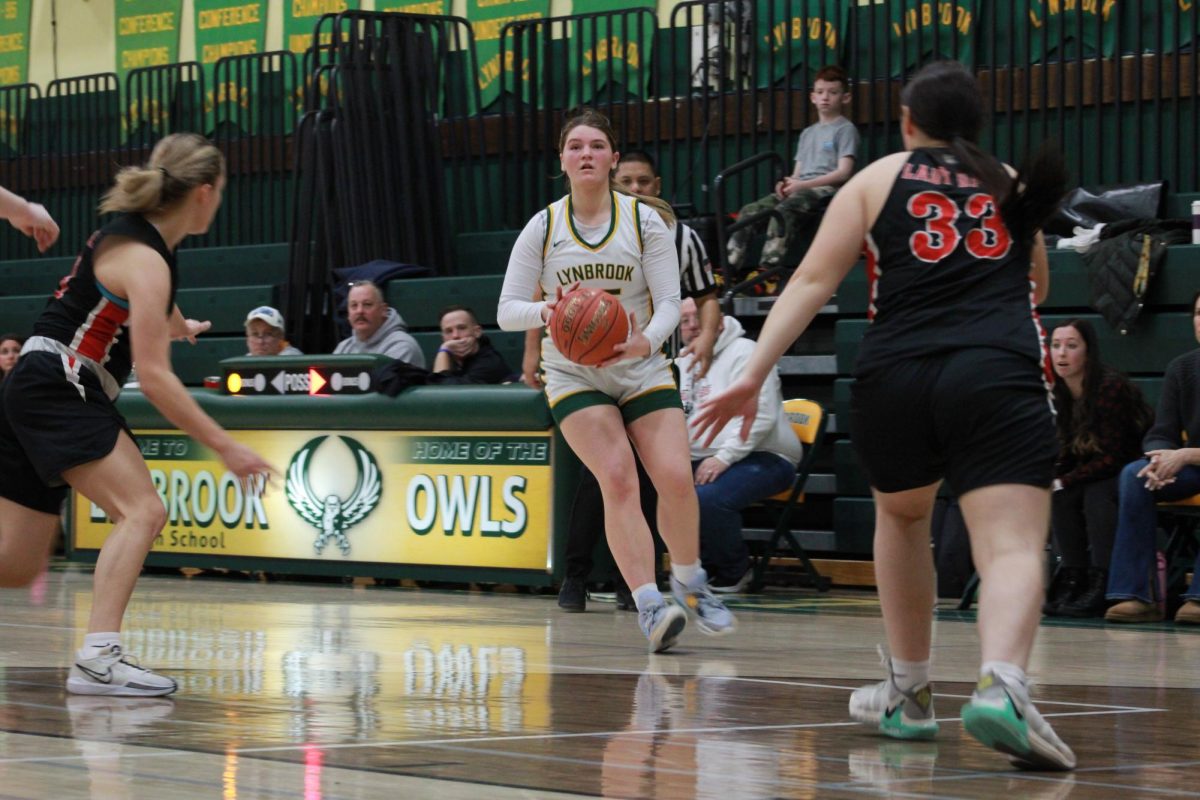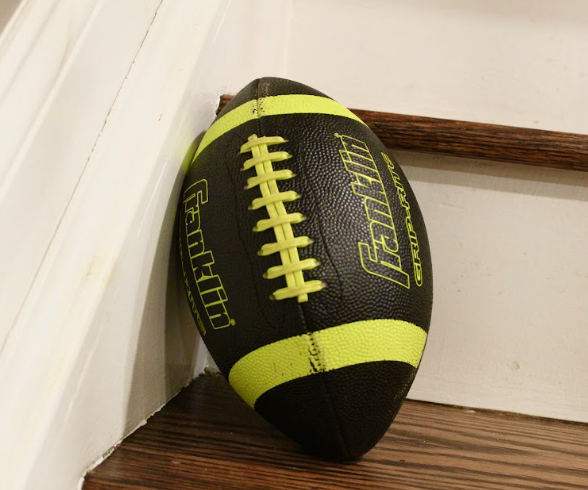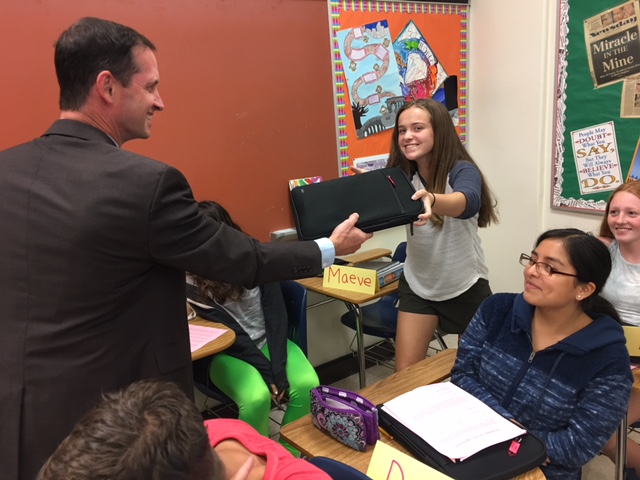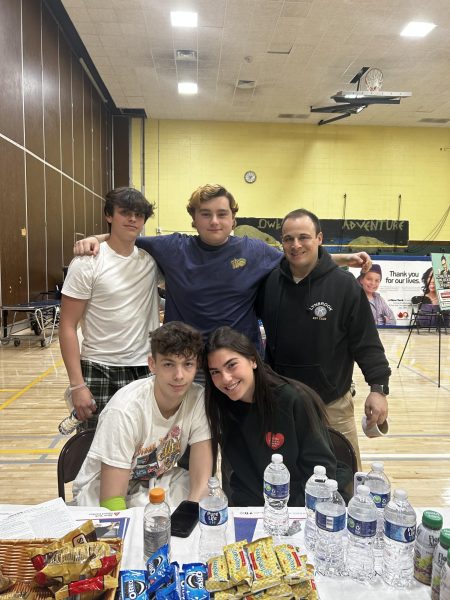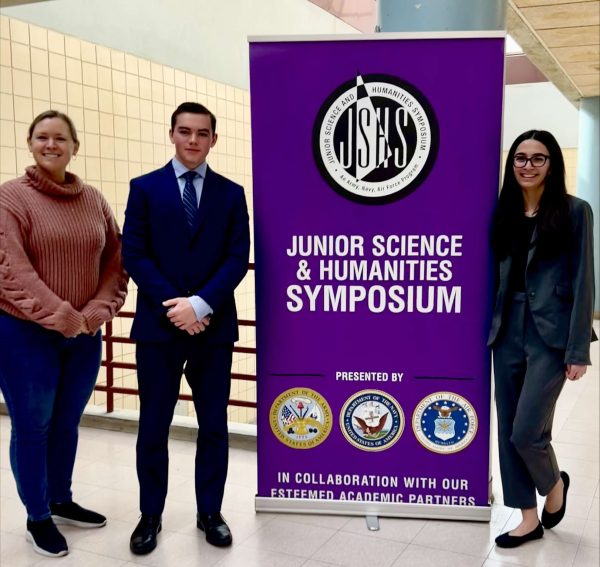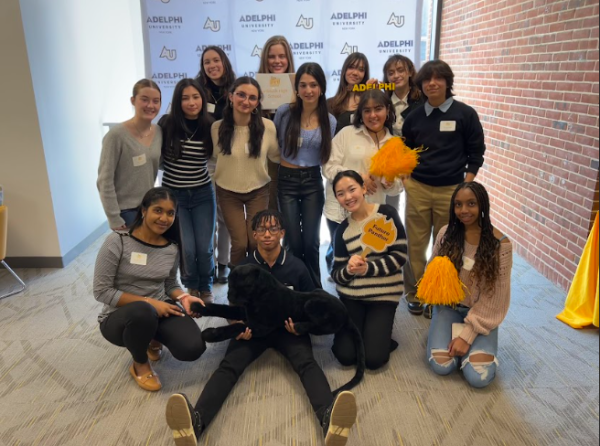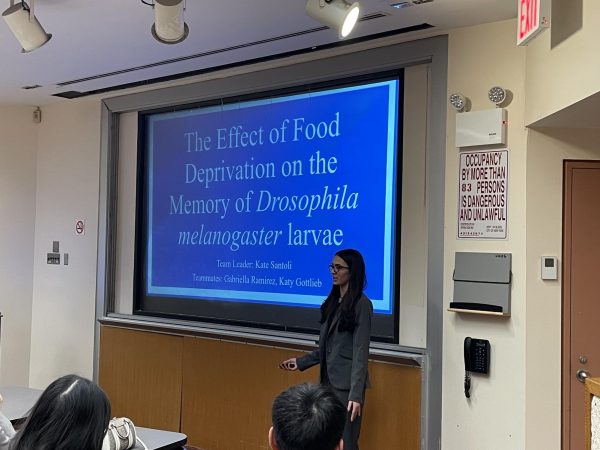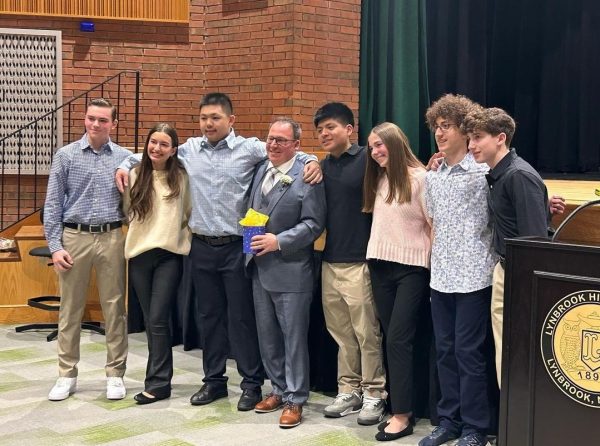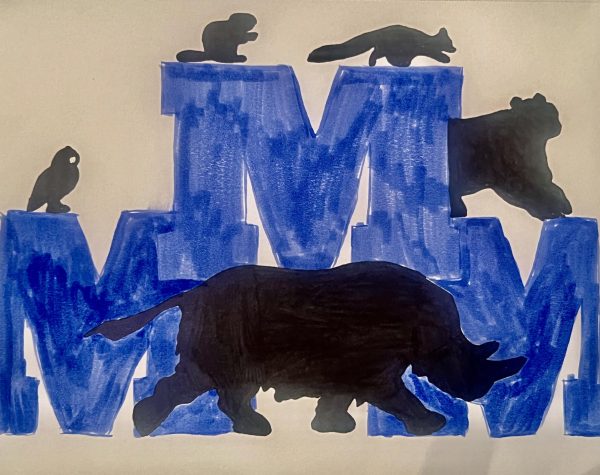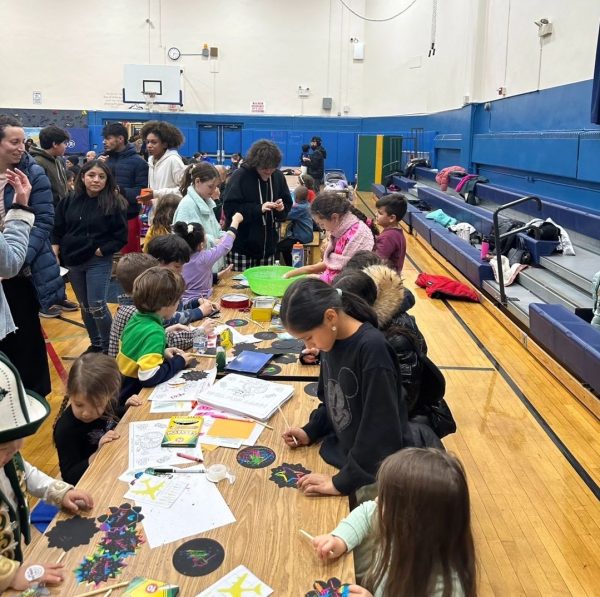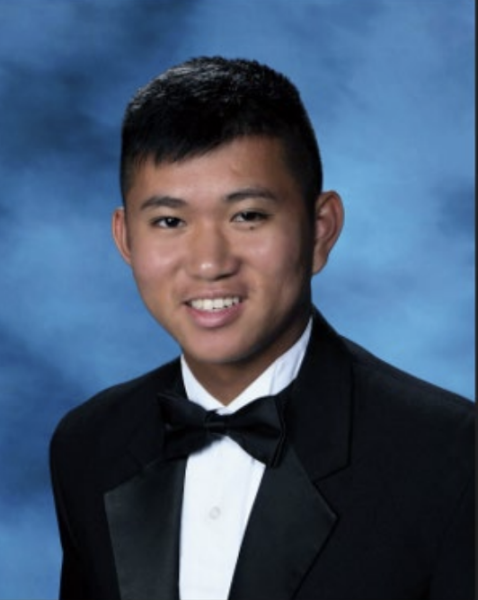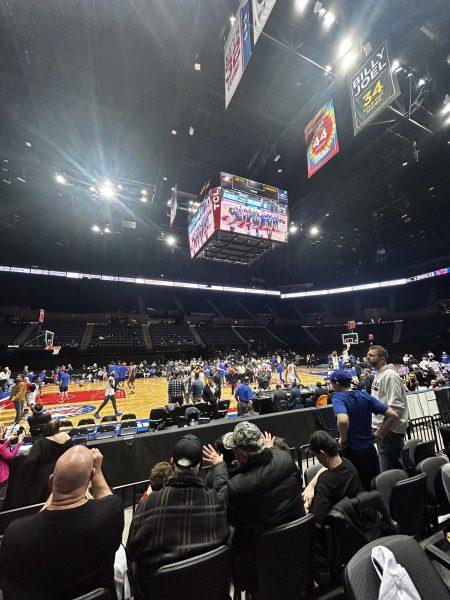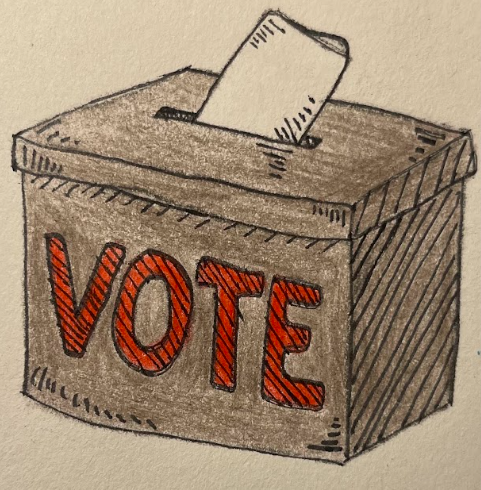Tablet Rollout
Freshman Maeve Mooney receives her new tablet from Instructional Technology Coordinator Neil MacDermot
At the beginning of this school year, all freshmen and sophomores were given Dell Latitude Tablets to be used in their classes. Next year, the entire high school student body will receive tablets. The technology department prepared 430 devices for the ninth and tenth grade classes. Each tablet cost $638, and the accessories, namely the cases and styluses, cost $15 and $50, respectively.
The distribution of the tablets went off largely without a hitch. “We were extremely pleased by the efficiency of the roll out. The majority of the devices were delivered to students on their grade level’s distribution day,” says Neil MacDermott, the district’s instructional technology coordinator.
Many administrators and teachers are excited about the educational opportunities digital learning makes available to students. “The digital format encourages collaboration and offers more personalized instruction,” says MacDermott.
Global History Teacher Olga Zisel says, “Overall, I like the change. The advantages are that we can push notes out to students at any time. If they are absent, they can stay on top of their work. Going almost paperless is great. Everything feels more organized, and work seems to get done more quickly and efficiently so far.” Science Teacher Kevin Tranchina agrees, saying, “I look forward to the ease of interaction and giving feedback to the students in real time.”
Maddelina Coletta, Italian teacher, says, “I found the adjustment easy to manage, and the class is running smoothly. I think that switching to tablets was a good choice because it will help students later in their career as everything is electronic now and the modern workforce is expected to be technologically savvy.”
We were extremely pleased by the efficiency of the roll out. The majority of the devices were delivered to students on their grade level’s distribution day.
— Neil MacDermott
Faculty are also pleased with the environmental impact the tablets will have. “I look forward to the unspeakably large amounts of paper we’ll save in the copy room,” says Tranchina. “I like that I don’t have to spend time in the copy room and using so much paper. It’s also nice that I can check student work without creating a giant pile of papers on my desk,” agrees Zisel.
In addition, the software that will be used on the tablets, OneNote, shows a lot of potential. “Learning how to use OneNote has been pretty smooth because last year we all used the laptops in class for a week and had to learn the new programs. On top of that, we attended workshops with Ms. Kelly, which was helpful. This year, my go-to helpers are the students. They know everything and have already helped me in figuring it all out,” says Zisel. “Like everything in life, practice makes perfect! Like most of the high school teachers, getting used to OneNote and the tablet instead of notebooks and binders is something new for us. The tech department and ninth and tenth grade students are very helpful. Our departmental members are helping each other, and I am happy with my progress thus far,” adds Leonard Bruno, Italian teacher and foreign language department chair.
While there are many potential advantages, there are still some logistical quirks and personal issues both teachers and students have with the tablets themselves and the OneNote system. Zisel says one issue teachers have is that “it’s difficult to monitor and make sure students aren’t playing games when you’re standing in front of the room.”
While many teachers seem to be in favor of the change, not all students are on board. Sophomore Brennan O’Grady says, “I don’t like OneNote because it’s unorganized and inconvenient.” Freshman Andrew Bamman disagrees, “I like the tablets because they make my school work a lot more organized. The tablets also make my backpack a lot more lightweight as compared to the heavy binders and books we had before.”
“I think they run really slow, and I think most people are better writing as opposed to typing…OneNote works pretty well, but it’s annoying that we still have to carry binders in case teachers give handouts,” adds freshman Maeve Mooney.
Although the tablets are not a perfect system, they are a step in the direction towards bringing education into the 21st century. It is likely that as time goes on, more teachers and students will get used to the tablets and be better able to fully utilize them. For the meantime, support for technology issues is available in Room 102, where Katie Kelly and Jane Paladino will resolve issues as quickly as possible in order to minimize the loss of instructional time.

I began participating in Horizon as a writer in my freshman year, and I was editor for A&E as a sophomore. As editor-in-chief of the website my junior...

